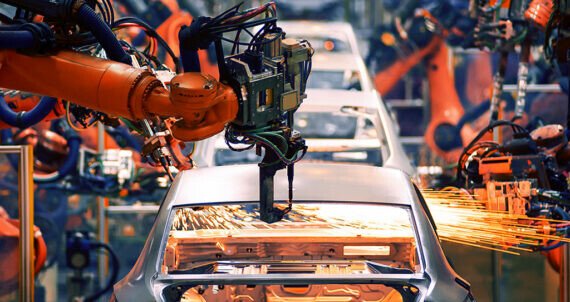|
Getting your Trinity Audio player ready...
|

When we think of radiation, cars may not be the first thing that comes to mind. However, radiation plays a vital role in the automotive industry. Car manufacturers utilize radiation for various tasks, ranging from quality control to safety inspections. In this article, we will delve into the intriguing ways in which radiation is employed by car manufacturers, highlighting its importance and benefits in ensuring the production of safe and reliable vehicles.
Quality Control and Inspection
Radiation is commonly used in quality control processes to assess the integrity and performance of automotive components. X-ray and gamma-ray systems are employed to conduct non-destructive testing (NDT) on critical parts, such as welds, castings, and engine components. By subjecting these parts to radiation, car manufacturers can detect internal defects, cracks, or structural abnormalities that may compromise the overall quality and safety of the vehicle. This ensures that only components meeting stringent standards are used in the manufacturing process.
Material Testing and Analysis
Radiation is also utilized for material testing in the automotive industry. Through techniques like neutron activation analysis (NAA) and X-ray fluorescence (XRF), car manufacturers can determine the elemental composition of materials used in vehicle components. This helps ensure that the materials meet required specifications in terms of strength, durability, and corrosion resistance. By accurately analyzing the material composition, manufacturers can make informed decisions about the selection and suitability of materials for different parts of the vehicle.
Airbag Safety Testing
One crucial aspect of car safety is the proper functioning of airbag systems. To ensure their effectiveness, car manufacturers subject airbags to radiation during testing. By exposing the airbag to a controlled radiation source, manufacturers can simulate real-world scenarios and analyze how the airbag deploys and inflates. This testing helps determine the reliability and efficiency of airbag systems, ensuring that they provide the necessary protection in the event of a collision.
Paint Thickness Measurement
Achieving the right paint thickness on car bodies is crucial for aesthetics, corrosion protection, and durability. Car manufacturers utilize radiation-based techniques, such as beta backscatter gauges, to measure paint thickness accurately. These devices emit low-level radiation onto the painted surface and measure the intensity of the backscattered radiation. This enables manufacturers to monitor and control paint thickness, ensuring consistent quality and adherence to specifications.
Ionizing Radiation in Polymer Processing
Ionizing radiation, such as gamma rays or electron beams, is utilized in polymer processing for crosslinking and sterilization purposes. Car manufacturers employ this technology to enhance the properties of rubber components, such as tires, seals, and hoses. Crosslinking improves the durability, heat resistance, and mechanical strength of rubber materials, contributing to the overall performance and longevity of automotive components.
Radiation in Battery Development
As the automotive industry shifts towards electric vehicles (EVs) and hybrid models, radiation is playing a role in the development and testing of advanced battery technologies. Radiation-based techniques, such as neutron imaging, are used to examine the internal structure and performance of battery cells. By analyzing neutron images, researchers can evaluate the distribution of materials, detect potential defects or degradation, and optimize the design and performance of batteries for improved efficiency and range.
Radiation for Tire Testing
Tires are a critical component of any vehicle, and their performance and safety are of utmost importance. Car manufacturers utilize radiation-based methods for tire testing, such as X-ray imaging, to inspect tire structures and detect any anomalies . This allows manufacturers to ensure the quality and integrity of tires, including sidewall strength, tread patterns, and overall durability, contributing to enhanced safety on the road.
Radiation in Automotive Security
With the increasing integration of advanced electronic systems and connectivity in vehicles, ensuring cybersecurity is vital. Radiation-based testing techniques are employed to evaluate the vulnerability of automotive electronics to electromagnetic radiation interference. By subjecting the electronics to controlled radiation exposure, manufacturers can assess their resilience against external electromagnetic threats and implement necessary safeguards to protect against potential hacking or disruption of critical systems.
Radiation in Vehicle Inspection
Radiation-based techniques, including gamma-ray radiography and computed tomography (CT) scanning, are used for thorough vehicle inspections. These methods allow inspectors to detect hidden defects, such as corrosion, within vehicle components and systems.
Conclusion
Radiation has become an indispensable tool for car manufacturers, providing valuable applications in testing, quality control, and safety measures. From non-destructive testing to material analysis, radiation-based techniques offer precise and efficient solutions for ensuring the reliability. Also its safety and performance of automotive components. With ongoing advancements in radiation technology, car manufacturers continue to harness its benefits. This is to drive innovation, improve production processes, and enhance the overall quality of vehicles we rely on every day.
